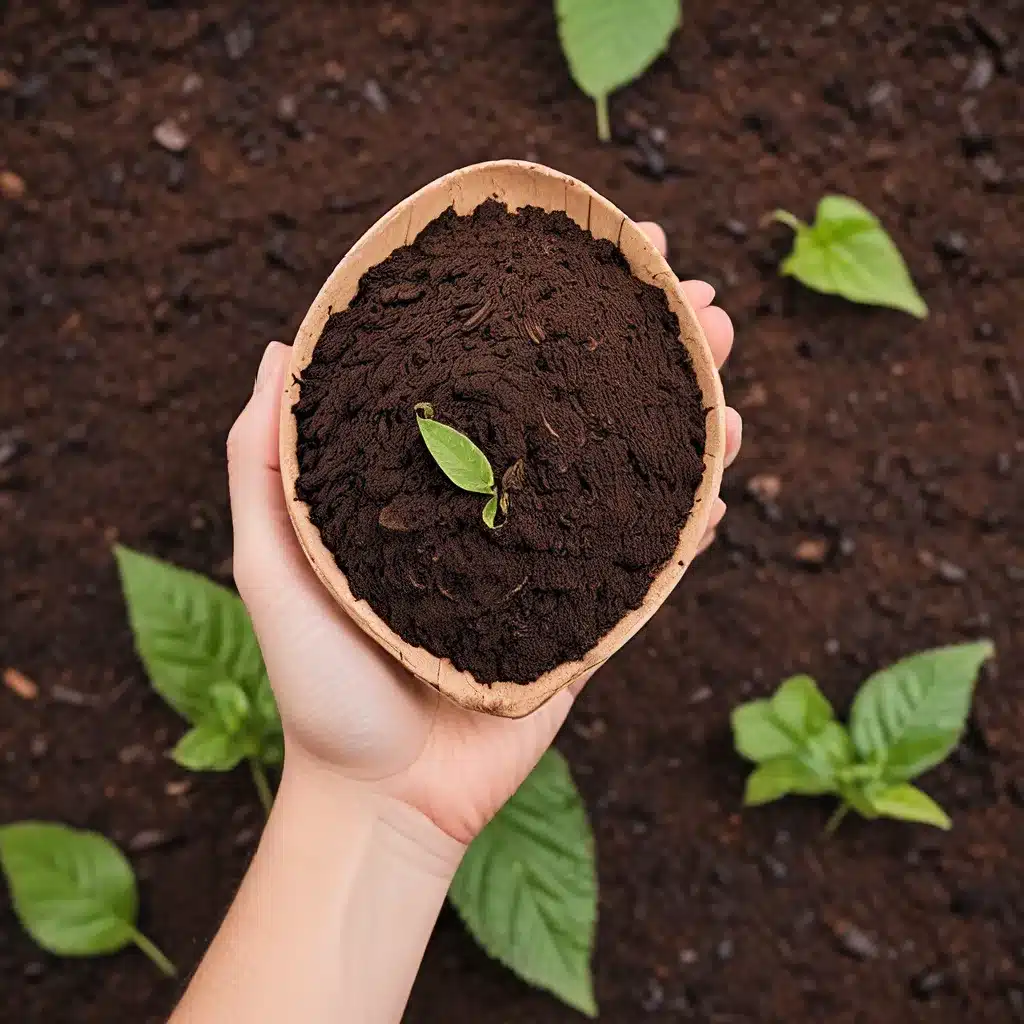
As a coffee enthusiast, I’ve always been fascinated by the potential of our beloved brew to contribute to a greener future. Recently, I’ve been diving deep into the world of biofuels, and I can confidently say that the marriage of coffee grounds and biofuel technology is a match made in sustainability heaven.
Unlocking the Power of Coffee Grounds
Let’s start by exploring the coffee grounds themselves. These unsung heroes of the coffee world are often relegated to the compost pile, but their true potential lies in their untapped energy reserves. Studies have shown that coffee grounds are rich in fats, oils, and other organic compounds that can be efficiently converted into biofuels.
According to Bold Business, the process of converting coffee grounds into biofuel is surprisingly straightforward. The grounds are first dried, and then the oils are extracted through a process called transesterification. This process transforms the oils into biodiesel, a renewable and clean-burning fuel that can power our vehicles, generators, and more.
But the benefits of this eco-friendly partnership don’t stop there. Coffee grounds are also an excellent source of nutrients for microorganisms used in the production of biogas, another type of biofuel. By harnessing the power of these tiny organisms, we can unlock even more energy potential from our beloved coffee dregs.
The Rise of Biofuels
Now, let’s talk about the biofuel side of the equation. The world is increasingly embracing renewable energy sources, and biofuels are at the forefront of this green revolution. Biofuels are fuels derived from organic matter, such as plant materials, agricultural waste, and even municipal solid waste.
According to the Maryland Department of the Environment, biofuels offer a host of advantages over traditional fossil fuels. They are renewable, biodegradable, and significantly reduce greenhouse gas emissions. Furthermore, the production of biofuels can create new economic opportunities and jobs in rural and agricultural communities.
One particularly exciting development in the biofuel industry is the rise of advanced biofuels, which utilize non-food feedstocks like agricultural residues, woody biomass, and, you guessed it, coffee grounds. These advanced biofuels are poised to play a crucial role in the transition to a low-carbon economy, as they can be produced without competing with food production.
The Coffee Grounds-Biofuel Synergy
Now, let’s explore the synergy between coffee grounds and biofuels. As I mentioned earlier, coffee grounds are an excellent source of oils and organic compounds that can be converted into biofuels. But the benefits of this partnership go far beyond just fuel production.
According to ProcMart, a leading provider of sustainable packaging solutions, the use of coffee grounds in biofuel production can also contribute to the development of a robust and sustainable business platform. By incorporating coffee grounds into their biofuel supply chain, companies can not only reduce waste and emissions, but also create new revenue streams and economic opportunities.
Moreover, the integration of coffee grounds into biofuel production can lead to the development of innovative and sustainable packaging solutions. These packaging technologies can help minimize the environmental impact of the biofuel industry**, further enhancing the overall sustainability of this partnership.
The Future of Fuel: A Greener, Caffeinated Horizon
As I delve deeper into this captivating topic, I can’t help but feel a sense of excitement and optimism about the future of biofuels and their connection to coffee grounds. While we may still have some challenges to overcome, the potential for a more sustainable and eco-friendly future is palpable.
Sips Coffee House, for example, has already taken steps to incorporate coffee ground-based biofuels into their operations. By using these innovative fuels to power their delivery vehicles and equipment, they are reducing their carbon footprint and leading the charge towards a greener future.
But the possibilities don’t stop there. Imagine a world where every coffee shop, roastery, and household could contribute to the biofuel revolution by simply saving their used coffee grounds. The environmental impact of such a widespread effort would be staggering, and the economic opportunities it could unlock are truly exciting to ponder.
As I sit here sipping my freshly brewed cup of coffee, I can’t help but wonder about the untapped potential that lies within these seemingly innocuous grounds. It’s a testament to the power of innovation, collaboration, and a willingness to think outside the box. If we can harness the energy of coffee grounds and combine it with the transformative power of biofuels, I believe we can fuel a future that is not only sustainable but also deliciously caffeinated.
So, let’s raise our mugs to this dynamic duo and the endless possibilities that lie ahead. The road to a greener tomorrow may be paved with coffee grounds, and I, for one, am more than ready to take that journey.















